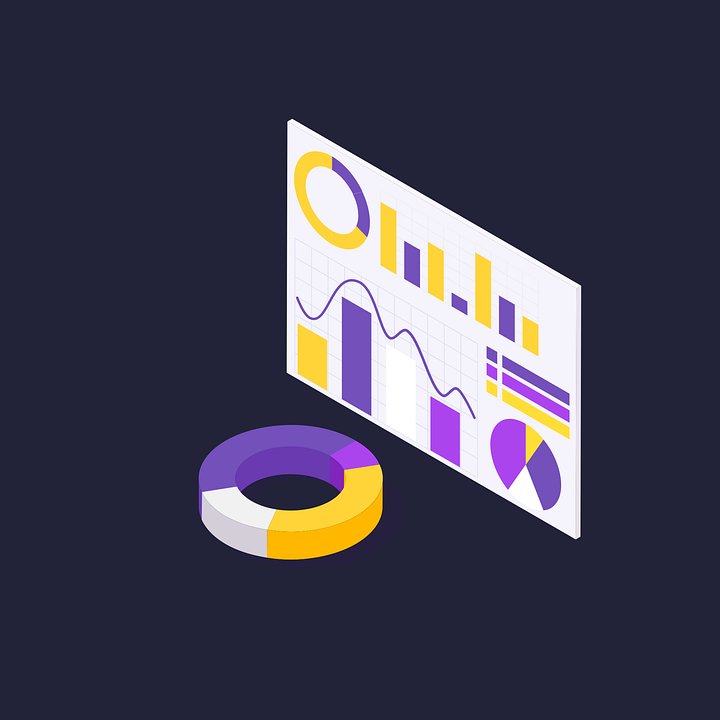Semrush and Google Analytics are two of the most popular web analytics tools for digital marketing professionals. But what exactly is the difference between Semrush and Google Analytics? And how do you know which website analytics service to use to improve your search engine optimization (SEO) to get higher rankings and traffic?
In this post, we will explore the difference between Google Analytics and Semrush so that you can understand how these digital marketing tools work. Ultimately, you know which service to choose for your needs and budget: Semrush or Google Analytics. Consider this our complete guide to Google Analytics and Semrush for SEO and Digital Marketing Success.
Semrush compared to Google Analytics
The main difference between Semrush and Google Analytics is that Semrush is an external service for studying another company’s website whereas Google Analytics is an internal service for studying your website. Semrush collects data from consumers, Google, and third parties to provide insights into each site.
Difference between Semrush and Google Analytics comparison chart
Here is a quick overview and side-by-side comparison of Semrush vs Google Analytics. If you’re looking for something more in-depth, continue reading the rest of this guide.
Semrush is a comprehensive digital marketing tool to improve your website’s online visibility and uncover marketing insights for competitor websites. Semrush includes software for SEO, PPC, SMM, PR, keyword research, content marketing, campaign management, and competitive research. You can try Semrush for free here via my referral link to see what it can do for you. I only get a commission if you upgrade to a paid plan at no additional cost to you.
Google Analytics is a web analytics service that helps users identify trends in how visitors interact with their websites. Google Analytics tracks website activity such as session duration, pages per session, bounce rate, acquisition channels, conversions, visitor demographics, and technology, along with traffic source information. Now that you know about Semrush and Google Analytics, the next section covers the pros and cons of these digital marketing tools.
Advantages and disadvantages of Semrush
Positive points for Samroush
A comprehensive digital marketing service with more than 50 tools.
It allows you to gain SEO, PPC, and SMM insights for any website domain.
It includes a keyword gap tool that helps you find keywords that are common to your competitors and detect missed opportunities to create new content for your website.
It includes a backlink gap analysis tool to find patterns of backlinks and gaps between your competitors, so you can try to get the same high-quality backlinks for your website.
The SEO content template feature helps you quickly create content summaries that allow writers to create SEO-optimized articles.
Keyword Magic analyzes keyword topics and reports estimated search volume, user intent, keyword difficulty, CPC values, level of competition, SERP features, keyword changes, and more to help you improve your keywords.
The position tracking tool allows you to track the daily keyword rankings of your target website.
Social media management tools allow you to schedule posts, track performance and create, launch, manage, and optimize ads.
Excellent customer support
A free tool from Semrush Sensor to track Google SERP volatility. Sensor Personal Semrush results allow you to calculate the volatility of a set of keywords that you set in the position tracking section.
Disadvantages of Samrush
It is not a free service.
Semrush’s minimum price is $119.95 per month for the Pro plan.
Trends costs an additional $200 per user per month to access traffic analytics and market explorer tools to analyze your competitors’ marketing strategies across all major channels.
Historical data can only be accessed by upgrading to the Guru plan for $229.95 per month.
Some features are only available as part of projects, and Semrush limits the number of projects you can run based on your subscription plan.
Traffic insights and keyword analysis data for competitor sites are not 100% accurate because they are based on estimates that use proprietary data collection methods (eg, Google Analytics, data is not taken directly from the domain).
Real-time website traffic data is not reported.
Advantages and disadvantages of Google Analytics
Advantages of Google Analytics
Free to use (the ultimate advantage of Google Analytics vs. Semrush).
Simple setup for any domain.
Provides reports for acquisition, engagement, monetization, and retention.
Provides demographic and technical details of your website visitors.
Google Search Console can be connected to report keyword data such as organic search terms, impressions, click-through rate, and average search position on Google.
Many site features can be managed under one account.
Shows yoaccurateal time traffic data.
It allows you to track custom events such as downloads, link clicks, form submissions, etc.
It gives you the ability to track conversions to goals (such as purchases, downloads, and subscriptions).
It’s close to 100% accurate for the website being tracked because the data comes directly from Google (see related issues below).
Disadvantages of Google Analytics
Allow statistical information only for domains that you own or have administrator access to.
It is only good for tracking and measuring your SEO data. It does not provide any recommendations for improving on-page SEO or off-page SEO strategies for your website.
Google Universal Analytics will be discontinued in July 2023, and Google Analytics 4 will no longer provide past data to this service.
It does not provide organic keyword traffic data by default. To access that data in the dashboard, you need to link to Google Search Console.
Limited sampling of user data for some reporting features. This means that only a portion of your website’s data is analyzed for reporting and then applied to all visitors. For example, average page time does noaccount front individual visitors, but only a small percentage of users, which means that the reported data is not 100% accurate.
There is no customer support
Although Google Analytics does not have as many benefits as Semrush, every website owner should create a free Google Analytics account because the data it provides beneficial for guiding both on-page and off-page SEO strategies. You can get started with Google Analytics here.
Is Semrush better than Google Analytics?
Semrush is better than Google Analytics for doing competitor research and studying your websites to make better decisions for SEO, PPC, SMM, PR, keyword research, content marketing, link building, and campaign management. Google Analytics is only useful for tracking and measuring your website traffic data. When choosing between Semrush or Google Analytics, you should consider how much analysis you want to do for your website and related marketing campaigns, as well as the depth of competitor research you want to do.
If you want an all-in-one tool for tracking, measuring, and comparing your website content and marketing campaigns with your competitors, Semrush is the best option. In that case, I invite you to try Semrush for free here with my referral link. However, if you just want to track and measure your website analytics data, Google Analytics is a good option to use.








Leave a Comment